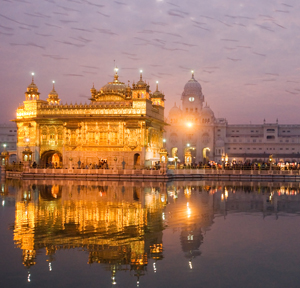Strategy
Five Top Tips For Investors Ahead Of Indian Elections

In the run up to the 2024 Indian elections, Gaurav Narain, portfolio advisor of the India Capital Growth Fund and co-head of equities at Ocean Dial Asset Management, shares five top things that investors should know.
Gaurav Narain, portfolio advisor of the India Capital Growth Fund and co-head of equities at Ocean Dial Asset Management, has highlighted this week that Indian prime minister Narendra Modi is a firm favourite to win, with two successful terms under his belt.
Accommodating 968 million eligible voters is no easy feat for any government, Narain said in a note, so the election process is spread out to ensure that there is no doubt that it's a free and fair election.
Voting starts on 19 April and continues until 1 June 2024. The Electoral Commission has delegated a wide offering of specific dates for the different states and regions to vote on, each with several days gap between the next, so that voting can take place over the course of 44 days with results only being announced at the very end. Despite the long process, voting occurs on electronic machines, so the final result is known very quickly, he continued.
Modi remains popular
Narendra Modi, incumbent prime minister and leader of the
dominant Bharatiya Janata Party (BJP) has been in office since 26
May 2014, Narain added. Throughout his tenure as prime minister,
Modi’s poll ratings have never dipped below 60 to 70 per cent,
and he looks set to be re-elected for a third term. BJP has
traditionally found strong support in India’s populous
Hindi-speaking northern states, and Modi’s Hindu-first policies,
targeting 80 per cent of the population, has made him a firm
favourite.
Nevertheless, Modi’s popularity transcends just this. Narain believes that his development agenda, focusing on building up basic rural and urban infrastructure – clean water, roads and electricity – has solved lots of ground level problems, benefiting the lower income groups. Additionally, with the creation of country-wide digital infrastructure, he has removed a lot of corruption.
Opposition to Modi is weak
Modi is facing opposition from many parties, with the largest
being the Congress party, which has formed an alliance (INDIA)
with a number of regional parties to combat him, Narain said.
However, they have not articulated a strong policy direction from
a business perspective, nor an economic and business strategy
that would attract investment into India. Despite the united
front, they are in disarray.
On the other hand, the current government is very clear on the direction they want to take India for the next 20 years. As a result, there are many people – including investors – who are relying on Modi’s re-election, he added.
Legal and labour reforms are the next hot
topics
There are a few areas where the current government hasn’t made
huge inroads and those will be the next topics of focus
post-elections, Narain continued. The Indian legal system, though
independent, is very slow, with judgments potentially taking five
to 10 years. It is expected that moves will be made to streamline
the legal system so that businesses no longer need to move out of
India for arbitration services, he said.
In the labour sector, whilst labour is a state subject, Modi’s whole agenda revolves around his aim for India to be a developed country by 2047, so he needs the per capita income to move up. Narain believes that it is highly likely that there will be a more concerted push for India to become a big manufacturing base.
Modi’s government promotes a stable and attractive
investment environment
The possible impact of the election outcome on industries lies in
the government's approach to economic policies, Narain said. The
current government has focused on streamlining policies, such as
implementing the Goods and Services Tax (GST), which simplifies
taxation across the country. It is a very transparent policy
environment today, reducing the role of politicians in
manipulating taxes and promoting a more stable and predictable
investment environment. In the past few months, Modi has been
travelling across the country every day visiting various cities
and inaugurating projects worth billions of dollars – he’s a busy
man and his plans for India don’t seem to be slowing down anytime
soon, Narain added.
James Burns, lead manager of Evelyn Partners' Active Managed Portfolio Service, also believes that Modi is the clear frontrunner to win a third five-year term as prime minister, resulting in the longest period of stable government since Independence; investors will be hoping for a continuation of business-friendly policies. Now the world’s fifth-largest and fastest growing major economy, Burns said the case for investors for India is compelling on both a longer and medium-term view.
Shishir Baijal, chairman and managing director of Knight Frank India, also thinks that India is increasingly recognised as an attractive investment destination for global and domestic investors, owing to its robust domestic consumption, long-term economic stability, and extensive infrastructural development. See more commentary here about the Indian elections.